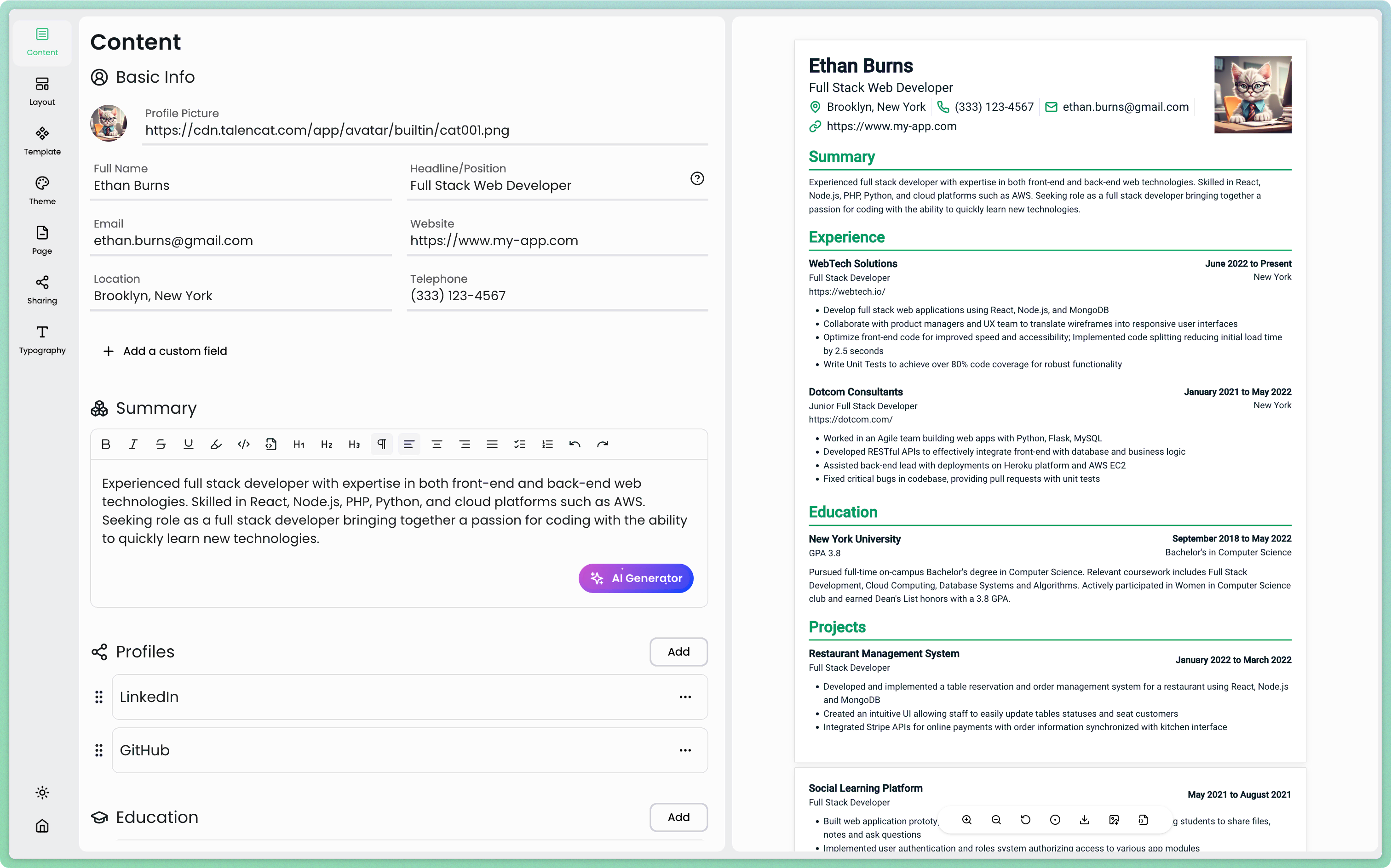Customer service assistants play a crucial role in today's business landscape, serving as the primary point of contact between companies and their customers. These dedicated professionals are essential in maintaining customer satisfaction, resolving issues, and fostering positive relationships between businesses and their clientele. In this comprehensive guide, we'll explore the multifaceted world of customer service assistants, delving into their responsibilities, required skills, career prospects, and the tools they use to excel in their roles.
Related Articles:


Introduction to Customer Service Assistants
Customer service assistants are the backbone of many organizations, providing invaluable support to both customers and businesses alike. Their role extends far beyond simply answering phones or responding to emails; they are the face of the company, often shaping a customer's entire perception of the brand.

Definition of a Customer Service Assistant
A customer service assistant is a professional who acts as a liaison between a company and its customers. They are responsible for addressing customer inquiries, resolving complaints, and providing information about products or services. These individuals work across various platforms, including in-person interactions, phone calls, emails, and live chat systems, to ensure that customers receive timely and effective assistance.
Importance of Customer Service Assistants in Various Industries
The significance of customer service assistants cannot be overstated. In today's competitive market, where customers have countless options at their fingertips, exceptional customer service can be the differentiating factor that sets a company apart from its rivals. Customer service assistants contribute to:
- Building brand loyalty
- Increasing customer retention rates
- Generating positive word-of-mouth marketing
- Improving overall customer satisfaction
- Providing valuable feedback to the company for product or service improvements
From retail and hospitality to technology and finance, customer service assistants are integral to the success of businesses across all sectors. Their ability to handle customer interactions professionally and efficiently can directly impact a company's bottom line and reputation.
Roles and Responsibilities
The duties of a customer service assistant are diverse and can vary depending on the industry and specific company needs. However, there are core responsibilities that are common across most customer service roles.
General Duties of a Customer Service Assistant
- Responding to customer inquiries via various communication channels
- Resolving customer complaints and issues
- Processing orders, refunds, and exchanges
- Providing product or service information
- Maintaining customer records and updating account information
- Escalating complex issues to appropriate departments or supervisors
- Collaborating with other team members to ensure customer satisfaction
- Adhering to company policies and procedures
- Participating in ongoing training and development programs
Specific Tasks Based on Industry
While the general duties remain consistent, customer service assistants may have additional responsibilities depending on their specific industry.
Retail
In the retail sector, customer service assistants often:
- Assist customers in finding products in-store or online
- Provide recommendations based on customer preferences
- Handle point-of-sale transactions
- Manage inventory inquiries
- Process returns and exchanges
- Offer information about promotions and loyalty programs
Libraries
Customer service assistants in libraries typically:
- Help patrons locate books and resources
- Manage library card registrations and renewals
- Assist with research inquiries
- Organize and maintain library materials
- Provide information about library events and programs
- Troubleshoot issues with library technology and equipment
Corporate Settings
In corporate environments, customer service assistants may:
- Schedule appointments and manage calendars
- Coordinate with different departments to resolve complex issues
- Provide technical support for company products or services
- Conduct follow-up calls to ensure customer satisfaction
- Generate reports on customer interactions and feedback
Online Services
For online-based businesses, customer service assistants often:
- Manage live chat support systems
- Respond to social media inquiries and comments
- Provide assistance with account setup and management
- Guide customers through online purchasing processes
- Offer technical support for website navigation and functionality
Required Skills and Qualifications
To excel as a customer service assistant, individuals must possess a unique blend of interpersonal and technical skills. While some of these skills can be developed through training, others are inherent qualities that make certain individuals naturally suited for customer service roles.
Essential Skills for Customer Service Assistants
Communication Skills
Effective communication is paramount in customer service. Assistants must be able to:
- Listen actively to understand customer needs and concerns
- Speak clearly and concisely, adapting their language to the customer's level of understanding
- Write professionally in emails and other written communications
- Use appropriate tone and empathy in all interactions
- Interpret non-verbal cues in face-to-face interactions
Problem-Solving Skills
Customer service assistants often encounter complex issues that require quick thinking and creative solutions. Key problem-solving skills include:
- Analytical thinking to identify the root cause of issues
- Decision-making abilities to choose the best course of action
- Creativity in finding alternative solutions when standard procedures don't apply
- Ability to remain calm under pressure and handle difficult situations
Technical Skills
In today's digital age, customer service assistants must be comfortable with various technologies:
- Proficiency in using customer relationship management (CRM) software
- Familiarity with point-of-sale systems and inventory management tools
- Ability to navigate multiple computer applications simultaneously
- Basic troubleshooting skills for common technical issues
- Typing speed and accuracy for efficient data entry and communication
Educational Background
While a specific degree is not always required for entry-level customer service positions, many employers prefer candidates with at least a high school diploma or equivalent. Some positions, particularly in specialized industries, may require a bachelor's degree in fields such as business administration, communications, or a related area.
Certifications and Training Opportunities
To enhance their skills and career prospects, customer service assistants can pursue various certifications and training programs:
- Customer Service Certification (CSC) from the National Customer Service Association
- Certified Customer Service Professional (CCSP) from the International Customer Service Association
- HDI Customer Service Representative Certification
- ICMI Certified Associate
- Microsoft Office Specialist Certification for proficiency in essential software tools
Many companies also offer in-house training programs to help customer service assistants develop industry-specific knowledge and skills.
Tools and Technologies Used by Customer Service Assistants
The modern customer service landscape is heavily reliant on technology to streamline processes and improve efficiency. Customer service assistants must be proficient in using a variety of tools and software to perform their duties effectively.
Software and Applications
- Ticketing Systems: Tools like Zendesk, Freshdesk, or Jira Service Desk help manage and track customer inquiries and issues.
- Knowledge Base Software: Platforms such as Confluence or KnowledgeOwl allow assistants to access and contribute to a centralized repository of information.
- Email Management Tools: Applications like Outlook or Gmail, often integrated with customer service platforms, are used for email communication.
- Scheduling Software: Tools like Calendly or Acuity Scheduling help manage appointments and customer interactions.
Communication Tools
- VoIP Systems: Voice over Internet Protocol systems like RingCentral or Vonage are used for phone-based customer support.
- Live Chat Software: Platforms such as LiveChat or Intercom enable real-time text-based communication with customers.
- Video Conferencing Tools: Applications like Zoom or Microsoft Teams are used for face-to-face virtual interactions and remote support.
- Social Media Management Tools: Platforms like Hootsuite or Sprout Social help manage customer interactions across various social media channels.
Customer Relationship Management (CRM) Systems
CRM systems are crucial for maintaining customer information and tracking interactions. Popular CRM tools include:
- Salesforce: A comprehensive CRM platform that offers a wide range of features for customer service management.
- HubSpot: An all-in-one CRM solution that integrates marketing, sales, and customer service functions.
- Microsoft Dynamics 365: A versatile CRM system that can be customized to fit specific business needs.
- Zoho CRM: A user-friendly option that offers robust features for small to medium-sized businesses.
Proficiency in these tools and technologies not only enhances the efficiency of customer service assistants but also improves the overall customer experience by enabling faster response times and more personalized interactions.
Crafting a Stellar Customer Service Assistant Resume with TalenCat CV Maker
In today's competitive job market, a well-crafted resume is crucial for landing a customer service assistant position. TalenCat CV Maker offers an intuitive platform to create professional resumes tailored for customer service roles. Follow this step-by-step guide to build your standout resume.
Step 1: Begin by logging into TalenCat CV Maker and clicking the "+ Create Resume" button in the top right corner.

Step 2: Name your resume something relevant like "Customer Service Assistant Resume" and choose whether to start from scratch or use a pre-made example.

Step 3: Use the reactive CV editor to input your information. As you type, you'll see your resume take shape in real-time on the right panel.

Step 4: Leverage TalenCat's AI-powered features to enhance your customer service resume. The platform can suggest relevant skills, experience descriptions, and even help tailor your resume to specific job listings.

Step 5: Once you're satisfied with your resume, you can export it as a PDF or image file. For easy sharing, consider enabling the online share feature to generate a shareable link.

By following these steps and utilizing TalenCat CV Maker's powerful tools, you'll create a professional, tailored resume that highlights your customer service skills and experiences, increasing your chances of landing your dream job in customer service.
Career Path and Advancement Opportunities
Entry-Level Positions
Most individuals start their customer service careers in entry-level positions, such as:
- Customer Service Representative
- Call Center Agent
- Help Desk Support
- Retail Sales Associate
- Front Desk Receptionist
These roles provide a solid foundation in customer service principles and practices, allowing newcomers to develop essential skills and gain valuable experience.
Opportunities for Growth
As customer service assistants gain experience and demonstrate their abilities, they can progress to more advanced roles:
- Senior Customer Service Representative
- Team Leader or Supervisor
- Customer Experience Specialist
- Technical Support Specialist
- Account Manager
These positions often come with increased responsibilities, such as mentoring new team members, handling escalated issues, or managing key accounts.
Common Career Transitions
From Customer Service Assistant to Manager
Many customer service professionals aspire to management roles. The typical progression might include:
- Customer Service Assistant
- Senior Customer Service Representative
- Team Leader
- Customer Service Supervisor
- Customer Service Manager
- Director of Customer Experience
This path often requires additional skills in leadership, strategic planning, and business operations.
Specialization Areas
Customer service skills are highly transferable, allowing professionals to transition into specialized roles such as:
- Customer Success Manager: Focusing on ensuring long-term customer satisfaction and retention, particularly in SaaS companies.
- Social Media Manager: Leveraging customer service skills to manage brand reputation and customer interactions on social platforms.
- Training and Development Specialist: Using customer service expertise to train new employees and develop customer service programs.
- Business Analyst: Applying customer insights to improve business processes and product offerings.
- User Experience (UX) Designer: Utilizing customer service knowledge to create more user-friendly products and interfaces.
These specialized roles often require additional education or certifications but can lead to exciting and lucrative career opportunities.
Job Market and Employment Outlook
Current Trends in Customer Service Jobs
- Remote Work Opportunities: The COVID-19 pandemic has accelerated the trend towards remote customer service positions, offering more flexibility for workers.
- Omnichannel Support: Companies are seeking customer service assistants who can seamlessly navigate multiple communication channels, including phone, email, chat, and social media.
- AI and Automation Integration: While some routine tasks are being automated, there's an increased demand for customer service assistants who can handle complex, empathy-requiring interactions that AI cannot.
- Focus on Soft Skills: Employers are placing greater emphasis on soft skills such as emotional intelligence, adaptability, and cultural awareness.
- Industry Specialization: There's a growing demand for customer service assistants with industry-specific knowledge, particularly in tech, healthcare, and financial services sectors.
Average Salary Expectations
Salary ranges for customer service assistants can vary widely based on factors such as location, industry, experience, and company size. As of 2023, the average annual salary for customer service representatives in the United States is approximately $35,000 to $40,000. However, this can range from around $25,000 for entry-level positions to over $60,000 for senior roles or those in specialized industries.
It's important to note that many customer service positions also offer additional compensation in the form of bonuses, commissions, or performance incentives, which can significantly increase overall earnings.
Geographic Demand for Customer Service Assistants
While customer service jobs are available nationwide, certain areas have higher concentrations of opportunities:
- Major metropolitan areas such as New York, Los Angeles, and Chicago
- Technology hubs like San Francisco, Seattle, and Austin
- Financial centers including Charlotte, NC and Hartford, CT
- Tourist destinations with a high concentration of hospitality and retail businesses
Additionally, the rise of remote work has opened up opportunities for customer service assistants to work for companies based in different geographic locations, potentially increasing job prospects and earning potential.
Tips for Success as a Customer Service Assistant
Excelling as a customer service assistant requires a combination of skills, attitude, and continuous improvement. Here are some key tips for success in this role:
Building Rapport with Customers
- Practice Active Listening: Pay close attention to what customers are saying, and ask clarifying questions to ensure understanding.
- Use Positive Language: Frame responses in a positive manner, focusing on solutions rather than limitations.
- Personalize Interactions: Use the customer's name and reference previous interactions to create a more personalized experience.
- Show Empathy: Acknowledge the customer's feelings and demonstrate that you understand their perspective.
- Follow Up: After resolving an issue, follow up with the customer to ensure their satisfaction and address any lingering concerns.
Managing Stress and Workload
- Prioritize Tasks: Use time management techniques to prioritize urgent matters while ensuring all tasks are completed efficiently.
- Take Regular Breaks: Step away from your workstation periodically to refresh your mind and reduce stress.
- Practice Self-Care: Engage in activities outside of work that promote physical and mental well-being.
- Seek Support: Don't hesitate to ask for help from colleagues or supervisors when dealing with challenging situations.
- Maintain a Positive Attitude: Focus on the positive aspects of your role and the impact you have on customers' experiences.
Continuous Learning and Improvement
- Stay Updated: Keep abreast of industry trends, new products or services, and changes in company policies.
- Seek Feedback: Regularly ask for feedback from supervisors and colleagues to identify areas for improvement.
- Participate in Training: Take advantage of training opportunities offered by your employer or pursue external courses and certifications.
- Learn from Experiences: Reflect on challenging interactions and consider how you could handle similar situations more effectively in the future.
- Network: Connect with other customer service professionals to share experiences and best practices.
Real-Life Experiences and Testimonials
To provide a more personal perspective on the role of a customer service assistant, let's hear from some professionals in the field:
Insights from Current Customer Service Assistants
Sarah Thompson, Customer Service Representative at a major e-commerce company: "What I love most about my job is the opportunity to help people every day. It's incredibly rewarding when I can turn a frustrated customer into a satisfied one. The key is to remain calm, listen carefully, and always strive to find a solution that works for both the customer and the company."
Michael Chen, Technical Support Specialist at a software firm: "In my role, I've learned that technical knowledge is important, but communication skills are crucial. Being able to explain complex issues in simple terms and guide customers through troubleshooting steps patiently can make all the difference in their experience with our product."
Common Challenges Faced
- Dealing with Angry Customers: Many customer service assistants cite handling irate customers as one of their biggest challenges. Developing thick skin and de-escalation techniques is essential.
- Balancing Speed and Quality: There's often pressure to resolve issues quickly while still providing thorough, high-quality service. Finding this balance can be tricky but improves with experience.
- Staying Updated on Products and Policies: In industries with frequent changes or complex product lines, keeping up-to-date can be challenging but is crucial for providing accurate information to customers.
- Managing High-Volume Workloads: During peak seasons or times of day, the volume of customer inquiries can be overwhelming. Effective prioritization and stress management skills are vital.
- Navigating Company Policies: Sometimes, company policies may conflict with what seems best for the customer. Learning to navigate these situations diplomatically is an important skill to develop.
Conclusion
Customer service assistants play a vital role in today's business world, serving as the primary point of contact between companies and their customers. Their ability to provide excellent service, resolve issues, and create positive experiences can significantly impact a company's success and reputation.
Summary of the Role of Customer Service Assistants
Customer service assistants are multifaceted professionals who:
- Act as brand ambassadors for their companies
- Provide information and support across various communication channels
- Resolve customer complaints and issues
- Process transactions and manage customer accounts
- Contribute to customer retention and loyalty
To excel in this role, individuals need a combination of strong communication skills, problem-solving abilities, technical proficiency, and a genuine desire to help others.
Future of Customer Service Assistants in the Workforce
As we look to the future, the role of customer service assistants is likely to evolve in several ways:
- Increased Integration with AI: While AI and chatbots will handle more routine inquiries, customer service assistants will focus on complex, high-value interactions that require human empathy and problem-solving skills.
- Greater Emphasis on Data Analysis: Customer service assistants may be expected to interpret customer data and provide insights to improve products and services.
- Expansion of Remote Work: The trend towards remote customer service roles is likely to continue, offering more flexibility and global opportunities.
- Focus on Proactive Service: Instead of just reacting to customer issues, assistants may take on more proactive roles in anticipating and preventing problems.
- Specialization in Emerging Technologies: As new technologies emerge, customer service assistants may need to develop expertise in areas such as virtual reality support or IoT device troubleshooting.
In conclusion, a career as a customer service assistant offers a dynamic and rewarding path with ample opportunities for growth and specialization. As businesses continue to recognize the importance of customer experience, skilled customer service assistants will remain in high demand.




